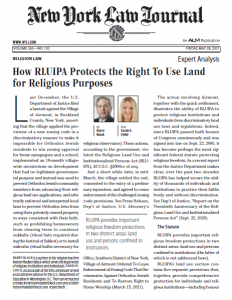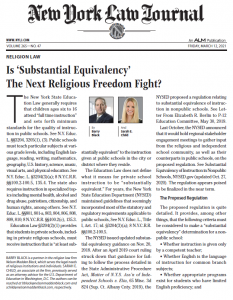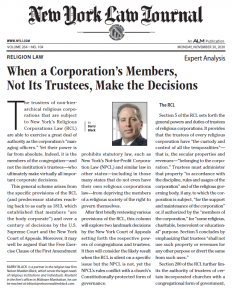In the August 27, 2021 edition of the New York Law Journal Religion Law column, partners Barry Black and Jonathan Robert Nelson look back at recent key rulings from the Supreme Court and look ahead to the SCOTUS’s new term and upcoming religion law cases on the docket. A particular case of note, Carson v. Makin, No. 20-1088, challenging Maine law stating that since more than half of Maine’s school administrative units (SAUs) do not operate a public secondary school that the SAU may “pay the tuition … at the public school or the approved private school of the parent’s choice at which the student [from their SAU] is accepted.” However, under Maine law a private school must be “a nonsectarian school” and several families have claimed that this requirement infringes on several federal constitutional rights, including theirs rights under the Free Exercise Clause.
The upcoming Supreme Court term should be filled with key developments for the religious community, read the full NMB analysis here.



